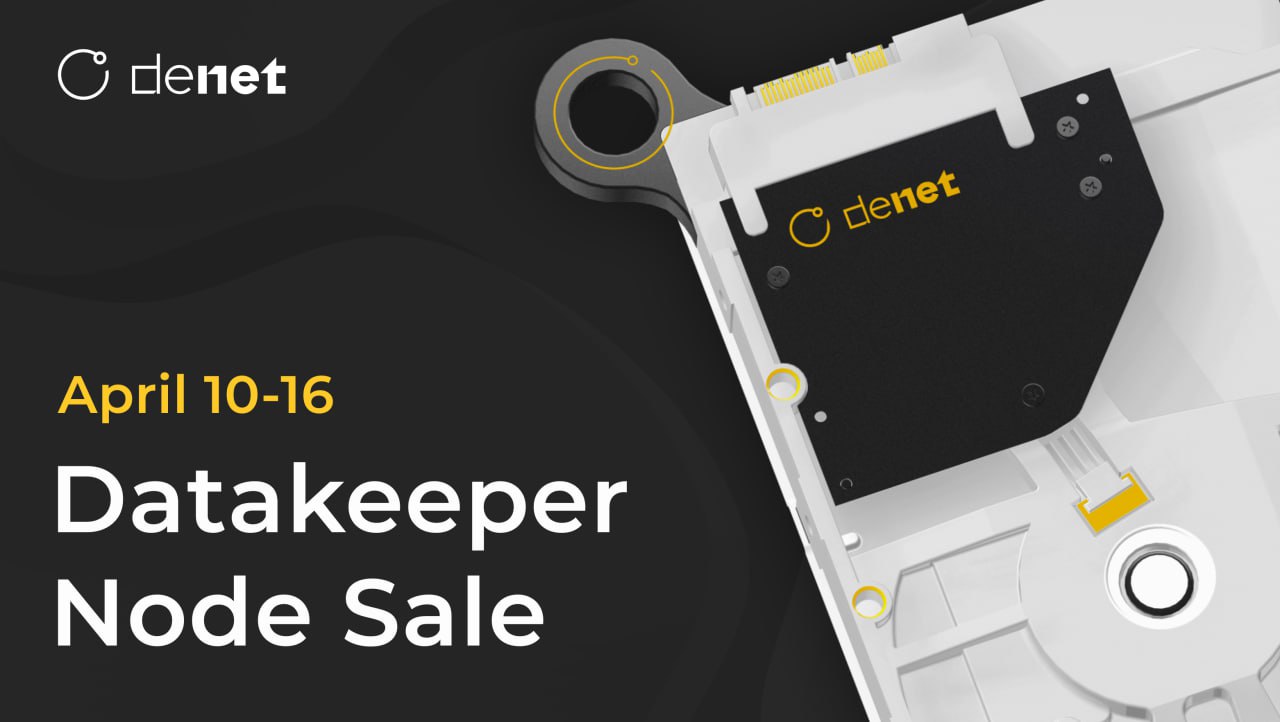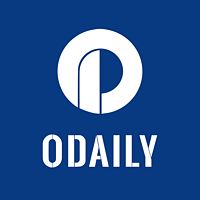Latest DePIN News

2 days ago
Roam to Sponsor 2025 Hong Kong Web3 Carnival with Free eSIM Data and WiFi Support
Roam, a leader in the DePIN track, has announced its participation as a primary sponsor at the 2025 Hong Kong Web3 Carnival, scheduled for April 6-9. In collaboration with the event organizers, Roam will provide attendees with complimentary eSIM data and WiFi network support, ensuring seamless connectivity throughout the venue. This initiative aims to enhance the overall experience for participants, allowing them to stay connected without interruptions during the event.
As part of its sponsorship, Roam will offer successful ticket purchasers 1GB of free eSIM data, which can be activated through the Roam App after following the instructions in their confirmation email. First-time users will also receive an additional 50MB of data. The Roam eSIM, which operates in over 180 countries, allows users to switch to local data automatically, thus avoiding high roaming fees. Roam's competitive pricing promises to reduce communication costs by 30% to 80%, making it an attractive option for travelers and business professionals alike. Users can also connect to over 4.5 million OpenRoaming WiFi hotspots globally, ensuring stable network access.
In addition to the eSIM offerings, Roam is engaging users through various activities, including the "Daily 2000 Steps Challenge" and exchange top-up promotions. Participants can earn rewards such as Roam eSIM data, USDT, and NFTs. Furthermore, Roam is conducting a limited-time reverse burn activity for ROAM token holders, enhancing profit potential for users. With over 3 million WiFi nodes and a growing user base, Roam is positioning itself as a significant player in the decentralized wireless network space, showcasing its commitment to user engagement and innovative solutions in the Web3 landscape.

2 days ago
DeNet Announces Exclusive Datakeeper Node Sale, Powering the Future of Decentralized Data Security
April 1, 2025 - DeNet, a decentralized storage network that empowers people and businesses to regain ownership of their data while making data hosting more efficient and censorship-resistant, is entering a key phase of its growth with the exclusive Datakeeper Node Sale, scheduled for April 10-16, 2025.
Up until April 7, 2025, users can reserve a node via DeNet’s website or mobile app, securing their spot in this short-window sale. Those who reserve and purchase nodes—dubbed “Datakeepers”—will soon be able to launch their nodes on peaq and begin earning rewards by storing others’ data, tapping into a global storage market that is set to reach $1 trillion by 2030.
"With the rise of the AI industry, the demand for data centers has hit new heights, with the data storage market expected to hit $774 billion by 2032. AI, space, healthcare, and blockchain —industries prioritizing data security—and the surge in data generation make this sector more relevant than ever. Data storage is one of the main components of DePIN, and Datakeeper nodes will play a crucial role in shaping the future of truly decentralized and accessible data storage", says Rafik Singatullin, co-founder.
In the DeNet ecosystem, launching a Datakeeper Node begins with a reservation. Running a node doesn't require any specialized equipment—anyone with just a PC can operate one from their home, office, or anywhere with internet access. Over time, each node builds its reputation, which directly impacts its potential earnings from ecosystem users.
Anyone can get up to 10 nodes in the current sale—and this is a more thoughtful strategy, since each node works at full capacity and thus brings more income with the same amount of installed equipment. Running multiple nodes connected to different node pools fills your storage capacity faster and at the same time strengthens the whole network increasing its reliability and speed.
Don’t miss out—reserve your node by April 7 to join the future of decentralized storage. For more details, visit DeNet’s website or download the mobile app (https://nodesale.denet.app/reserve/).

3 days ago
Traditional Investors Eye Decentralized Physical Infrastructure Networks for Growth
A recent report titled "The DePIN Token Economics Report" by Tom Trowbridge has shed light on the growing interest of traditional equity investors in Decentralized Physical Infrastructure Networks (DePIN). The report highlights how DePIN is revolutionizing real-world services such as Wi-Fi, energy, and computing. With over 1,000 projects and 3 million providers, DePIN has shown significant revenue traction, with hardware costs plummeting by 95% in recent years. Notably, Helium reported $350,000 in revenue for Q4 2024, while Geodnet achieved an annualized revenue of $3 million, showcasing the financial viability of these decentralized networks.
Traditional equity investors, who have historically been skeptical of token projects, are now recognizing DePIN as a promising investment avenue. The report indicates that this investor demographic is significantly larger than that of alt-coin investors, primarily due to DePIN's tangible services and impressive revenue metrics. The buy-and-burn mechanisms employed by various DePIN projects, such as Geodnet and Hivemapper, further enhance the appeal by linking revenue directly to token value. This financial model provides a clearer benchmark for investors, as evidenced by Geodnet's $500,000 revenue in Q4 2024, which supports price growth in its tokens.
Moreover, Trowbridge emphasizes the importance of simplicity in DePIN's token economics, suggesting that models should be straightforward to avoid confusion among investors. The report also highlights the necessity for transparency in the sector, especially in light of Helium's recent SEC charge for misleading investors. As DePIN continues to shift the narrative of cryptocurrency from speculation to utility, Trowbridge asserts that projects offering real-world services are scaling more rapidly and providing superior services at lower prices compared to their centralized counterparts. This shift could redefine the landscape of crypto investments, making DePIN a focal point for future growth in the industry.

3 days ago
Exploring the Best Crypto Airdrops of 2024
Airdrops have emerged as a prominent marketing strategy within the blockchain space, enabling projects to reward early adopters and attract new users by distributing free tokens. Participants can earn these tokens by completing simple tasks, such as following projects on social media or joining their community groups. In 2024, several notable airdrops are available, including Grass, a DePIN network that leverages idle internet bandwidth, and RetroBridge, a multi-chain token bridging platform. Other projects like WalletConnect and Rainbow Wallet are also offering airdrops, enhancing user engagement through point rewards and utility tokens.
Grass, for instance, allows users to earn Grass Points by running a node on their computer, with the potential for these points to convert into tokens in the future. The project has already distributed 100 million tokens to over 2 million users in its first airdrop phase and is currently in the second phase, distributing 17% of the total supply. Similarly, RetroBridge incentivizes users through various tasks, including token bridging and social media engagement, with plans to launch a marketplace for users to exchange their earned points for tokens in 2025.
As the landscape of crypto airdrops continues to evolve, platforms like Summer.fi and Zeek are also gaining traction by offering unique rewards systems. Summer.fi rewards users for engaging with DeFi protocols, while Zeek allows users to monetize their knowledge through a social network. However, participants should exercise caution, as not all airdrops are legitimate. Conducting thorough research and ensuring the authenticity of projects is crucial to mitigate risks associated with potential scams. Overall, airdrops remain a compelling way for users to engage with the blockchain ecosystem and potentially earn free cryptocurrency.

4 days ago
DeFi Protocols Showcase Remarkable TVL Growth in Recent Month
In the ever-evolving landscape of decentralized finance (DeFi), Total Value Locked (TVL) serves as a critical metric for assessing the growth of various protocols. Recent data from Phoenix Group has revealed significant TVL increases across several projects in the past month, attracting the attention of investors and crypto enthusiasts alike. Among the top 15 projects, BUIDL has emerged as the standout performer, showcasing a remarkable 219% growth in TVL, which now stands at $1.8 billion. This tokenized money market fund, powered by BlackRock and built on the Ethereum blockchain, has seen its value triple in just three weeks, reflecting a heightened demand for secure crypto assets.
Following BUIDL, Sonic (S) has secured the second position with a 171% increase in TVL, demonstrating the platform's growing influence since its rebranding from Fantom. Level Finance (LVL) comes in third with a 123% growth, attributed to its unique offerings in the DEX perpetual trading marketplace on the BNB Chain. Euler (EUL) and Sky (SKY) round out the top five, with TVL growths of 105% and 55.6%, respectively. Sky's recent rebranding from Maker to Sky has successfully attracted more users to its platform, further enhancing its market presence.
Other notable projects that have seen impressive TVL growth include DeepBook (DEEP) with a 53.8% increase, Idle Finance (IDLE) at 51.9%, and Beethoven X (BEETS) with a 47.9% rise. The data highlights a vibrant DeFi ecosystem, with projects like Orderly Network (ORDER) and Pell Network Token (PELL) also making significant strides. As the DeFi space continues to mature, these growth metrics underscore the increasing interest and investment in innovative financial solutions within the blockchain realm.

5 days ago
Significant Growth in Total Value Locked Across DeFi Projects
The total value locked (TVL) in various cryptocurrency projects has seen remarkable growth, as highlighted in a recent research document by Phoenix Group, which utilizes data from DeFiLlama. TrueFi (TRU) has emerged as the leading project, boasting a TVL increase of $260.2k, equating to an impressive 424% surge. This growth positions TrueFi ahead of its competitors in terms of locked value, showcasing the increasing investor confidence in decentralized finance (DeFi) markets.
Following TrueFi, three DeFi projects—Mint ($MINT), Maple ($MPL), and Zircuit ($ZRC)—have also experienced notable TVL growth. Mint currently holds a TVL of $1.5 million, while Maple and Zircuit report $454.4 million and $890.8 million respectively. This upward trend in TVL indicates a growing trust among investors and heightened activity within the DeFi sector, reflecting a broader acceptance of decentralized financial applications.
Additionally, other protocols such as Note ($NOTE), Euler ($EUL), and Velodrome ($VELO) have shown substantial TVL increases, with values rising to $13.5 million, $377.1 million, and $66.7 million respectively. The overall growth in TVL across multiple platforms signifies a diverse and expanding DeFi landscape, driven by enhanced liquidity and user engagement. As protocols like $IDLE, $PUFFER, $BLUE, and $CPOOL report successive growth, the ongoing trends are reshaping the DeFi ecosystem, attracting more capital inflows and reinforcing the foundation of decentralized finance networks.

5 days ago
The Rise of Decentralized Physical Infrastructure Networks in Cloud Computing
As technology continues to evolve, the Decentralized Physical Infrastructure Network (DePIN) is emerging as a transformative force in the realm of cloud computing. Built on blockchain technology, DePIN utilizes individual hardware devices, known as nodes, which can range from personal computers to IoT devices. This decentralized network eliminates the need for a centralized authority, enhancing security and transparency while outperforming traditional systems in efficiency and scalability. With the rise of AI applications, decentralized networks are becoming essential for managing data collection and processing, as highlighted by a recent CoinDesk report indicating that the market capitalization of DePIN tokens has exceeded $25 billion, driven by advancements in computing and AI sectors.
Several projects exemplify the potential of DePIN technology. Akash, often referred to as the "Airbnb of cloud computing," connects sellers of excess computing resources with buyers, creating an open-source platform for cloud services. Meanwhile, io.net focuses on providing a decentralized GPU network for machine learning applications, boasting 83,000 GPUs and significant cost savings compared to traditional providers. Grass, another DePIN initiative, allows users to share their internet bandwidth in exchange for rewards, while Koii aims to democratize access to decentralized computing by enabling any device to participate in the network, thus broadening the scope of user involvement and reward opportunities.
Despite the promising advancements, the DePIN market faces challenges in establishing a sustainable revenue model. Many projects rely on a dual-token system to balance supply and demand, akin to the Goldilocks problem of finding the right equilibrium. To foster growth, initiatives like Koii's EZSandbox are simplifying the onboarding process for developers, providing tools and resources to create and test decentralized applications. Collaborations, such as Koii's partnership with the Web3 search engine Adot, further enhance network efficiency and accessibility. As the reliance on cloud computing grows, DePIN platforms like Koii, Akash, and Grass are poised to reshape the landscape of decentralized computing, making it more accessible and cost-effective for users worldwide.

6 days ago
India Hosts First-Ever Solana DePIN Summit in Bangalore
Bangalore, India’s tech hub, recently hosted the first-ever Solana DePIN Summit on March 25, 2025, marking a pivotal moment for the country’s digital landscape. This event gathered both Indian and international startups focused on Decentralized Physical Infrastructure Networks (DePIN), providing a unique platform for innovators to present their ideas to a global audience of investors. The summit highlights the growing trend of blockchain startups in India, particularly in the DePIN sector, which integrates IoT, energy networks, and wireless communications with blockchain technology to create more efficient and decentralized infrastructure solutions.
One of the key players at the summit was Wifi Dabba, a Y Combinator-backed startup based in Bangalore, which served as the title sponsor. Wifi Dabba utilizes Solana's blockchain to enhance broadband access in Tier 2 and Tier 3 cities through a DePIN model, collaborating with local operators under India's PM-WANI initiative. Co-founder Shubhendu Sharma emphasized that Solana's choice of India for its inaugural DePIN Summit underscores the country's growing presence in the Web3 space, as Indian startups leverage blockchain technology to tackle real-world challenges, particularly in bridging the digital divide.
Despite having only 41 million fixed broadband connections compared to China's 600 million, India is poised to make significant strides in its digital infrastructure. The DePIN model proposed by Wifi Dabba aims to lower the barriers to entry for broadband access, aligning with the Telecom Regulatory Authority of India's goal of achieving 100 million broadband users by 2030. Events like the Solana DePIN Summit are crucial for amplifying India's role in the global DePIN landscape, showcasing local talent and fostering international collaboration, ultimately positioning India as a key player in Web3 innovations and decentralized infrastructure development.

8 days ago
Grayscale Updates Top 20 Crypto Projects for Q2 2025
Grayscale, the world’s largest crypto asset management company, has unveiled its updated list of the Top 20 potential crypto projects for Q2 2025. This latest list introduces three promising newcomers: Maple (SYRUP), Geodnet (GEOD), and Story Protocol (IP), while removing Akash, Arweave, and Jupiter. As the crypto market continues to experience volatility, Grayscale is strategically positioning itself to capitalize on emerging trends that could redefine the industry landscape.
According to Grayscale's Market Insights report, the first quarter of 2025 witnessed a decline in the cryptocurrency market, mirroring the downturn seen in tech stocks and other high-risk assets. Although Bitcoin's network activity remained stable, interest in meme coins, particularly within the Solana ecosystem, has diminished. Nevertheless, Web3 applications across DeFi, AI, and infrastructure sectors have collectively generated over $2 billion in revenue. Notably, Sui (SUI) has emerged as a leading smart contract platform, boasting rapid transactions and low fees without the need for additional scaling layers, currently holding just 3% of Grayscale’s Smart Contract Platforms index.
For Q2 2025, Grayscale is concentrating on three pivotal areas: Decentralized Physical Infrastructure (DePIN), Real World Assets (RWA), and Intellectual Property Tokenization (IP). The addition of Maple, Geodnet, and Story Protocol to the Top 20 list reflects this focus. Maple is a lending platform for institutional clients with a total value locked (TVL) exceeding $600 million, while Geodnet provides real-time positioning data across 130+ countries, generating over $3 million in monthly revenue. Story Protocol aims to tokenize the $70 trillion intellectual property market, attracting high-profile artists like Justin Bieber and BTS. However, Grayscale cautions that these assets are highly volatile and risky, particularly highlighting GEOD's lack of major exchange listings as a significant concern.

8 days ago
Phoenix Is Leading the Growth and Innovation of the DePIN-AI Sector
The Decentralized Physical Infrastructure Network (DePIN) sector is rapidly evolving, showcasing significant potential across various technological domains. According to a recent report by Messari, DePIN is currently in its nascent growth phase, holding less than 0.1% of the market share but boasting a market cap of $50 billion, supported by over 13 million devices contributing daily. By eliminating centralized intermediaries, DePIN facilitates a more efficient and inclusive sharing of physical assets, which is crucial for the development and operation of critical infrastructures in computing, AI, wireless technology, and energy services.
Since its inception, DePIN has garnered attention from major tech companies, particularly in 2023, as global manufacturers began integrating blockchain into real-world infrastructures. The sector can be categorized into Physical Resource Networks, which focus on devices, and Digital Resource Networks, which emphasize computing resources like CDNs and AI. This duality allows individual device owners to share data and earn rewards while providing accessible computing resources. DePIN's applications extend to telecommunications, data management, and cloud storage, offering scalable alternatives to traditional centralized systems and enhancing AI functionalities.
At the forefront of this innovation is Phoenix, a decentralized AI compute network that leverages DePIN infrastructure to deliver scalable solutions for AI applications. Phoenix's SkyNet platform utilizes a globally distributed network of high-performance GPUs, including both NVIDIA and alternative models, to optimize AI operations. Their collaborations with firms like TandemAI and Origin Quantum aim to democratize access to advanced computing resources, enabling research organizations to conduct complex analyses at minimal costs. As the DePIN-AI sector is projected to reach a market size of $3.5 trillion by 2028, Phoenix is poised to lead this transformative wave by merging decentralized infrastructure with cutting-edge AI technologies.
Signup for latest DePIN news and updates
